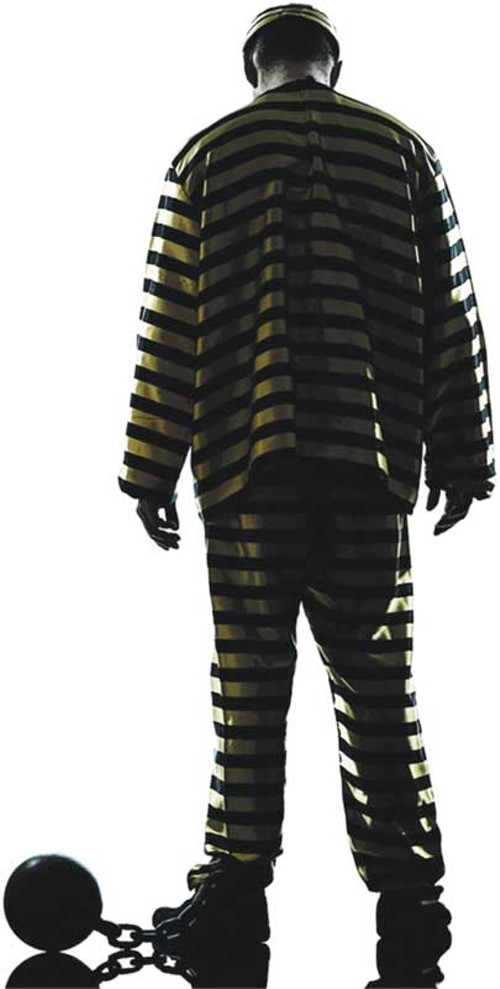Page 3 of 3
4. FBI agents responsible for terrorist plots
We know that FBI agents go into communities such as mosques, both undercover and in the guise of building relationships, quietly gathering information about individuals. This is part of an approach to finding what the FBI now considers the most likely kind of terrorists: “lone wolves.” Its strategy: “Seeking to identify those disgruntled few who might participate in a plot given the means and the opportunity. And then, in case after case, the government provides the plot, the means and the opportunity,” writes Mother Jones journalist Trevor Aaronson. The publication, along with the Investigative Reporting Program at the University of California-Berkeley, examined the results of this strategy, 508 cases classified as terrorism-related that have come before the U.S. Department of Justice since the 9/11 terrorist attacks of 2001. In 243 of these cases, an informant was involved; in 49 cases, an informant actually led the plot. And “with three exceptions, all of the high-profile domestic-terror plots of the last decade were actually FBI stings.”
5. Federal Reserve loaned trillions to major banks
The Federal Reserve, the United States’ quasi-private central bank, was audited for the first time in its history this year. The audit report states, “From late 2007 through mid-2010, Reserve Banks provided more than a trillion dollars ... in emergency loans to the financial sector to address strains in credit markets and to avert failures of individual institutions believed to be a threat to the stability of the financial system.” These loans had significantly less interest and fewer conditions than the high-profile TARP bailouts, and were rife with conflicts of interest. Some examples: The CEO of JP Morgan Chase served as a board member of the New York Federal Reserve at the same time that his bank received more than $390 billion in financial assistance from the Federal Reserve. William Dudley, who is now the New York Federal Reserve president, was granted a conflict-of-interest waiver to let him keep investments in AIG and General Electric at the same time the companies were given bailout funds. The audit was restricted to Federal Reserve lending during the financial crisis. On July 25, 2012, a bill to audit the Federal Reserve again, with fewer limitations, authored by Rep. Ron Paul, passed the House of Representatives. House Resolution 459 was expected to quickly die in the Senate, but the movement behind Paul and his calls to hold the Federal Reserve accountable, or abolish it altogether, may be growing.
6. Small network of corporations runs the global economy
Reporting on a study by researchers from the Swiss Federal Institute in Zurich didn’t make the rounds nearly enough, according to Project Censored 2013. They found that, of 43,060 transnational companies, 147 control 40 percent of total global wealth. The researchers also built a model visually demonstrating how the connections between companies—what it calls the “super entity”—work. Some have criticized the study, saying control of assets doesn’t equate to ownership. True, but as we clearly saw in the 2008 financial collapse, corporations are capable of mismanaging assets in their control to the detriment of their actual owners. And a largely unregulated super entity like this is vulnerable to global collapse.
7. The International Year of The Cooperative
Can something really be censored when it’s straight from the United Nations? According to Project Censored evaluators, the corporate media underreported the U.N. declaring 2012 to be the International Year of the Cooperative, based on the co-op business model’s stunning growth. The U.N. found that, in 2012, 1 billion people worldwide are co-op member-owners, or one in five adults over the age of 15. The largest is Spain’s Mondragon Corporation, with more than 80,000 member-owners. The U.N. predicts that by 2025, worker-owned co-ops will be the world’s fastest growing business model. Worker-owned cooperatives provide for equitable distribution of wealth, genuine connection to the workplace, and, just maybe, a brighter future for our planet.
Utah Connection: But as with music or fashion, Utah picks up on trends like these a little slower than the rest of the world. The Wasatch Cooperative Market has been in the works since 2009, but has yet to attract enough member-owners to open a true co-op, a market selling “local, high-quality products at fair trade prices.” The group was recently awarded a $10,000 grant from national nonprofit Food Co-op Initiative, which it must match and use within 10 months. Half of those funds are earmarked for a feasibility study on specific potential store sites, so the co-op is campaigning to reach at least 400 member-owners to bring the co-op to the point of being financially able to look at store sites. (Rachel Piper)
8. NATO war crimes in Libya
In January 2012, the BBC “revealed” how British Special Forces agents joined and “blended in” with rebels in Libya to help topple dictator Muammar Gaddafi, a story that alternative media sources had reported a year earlier. NATO admits to bombing a pipe factory in the Libyan city of Brega that was key to the water supply system that brought tap water to 70 percent of Libyans, saying that Gaddafi was storing weapons in the factory. In Project Censored 2013, writer James F. Tracy makes the point that historical relations between the United States and Libya were left out of mainstream news coverage of the NATO campaign; “background knowledge and historical context confirming al-Qaida and Western involvement in the destabilization of the Gaddafi regime are also essential for making sense of corporate news narratives depicting the Libyan operation as a popular ‘uprising.’ ”
9. Prison slavery in the United States
On its website, the UNICOR manufacturing corporation proudly proclaims that its products are “made in America.” That’s true, but they’re made in places in the United States where labor laws don’t apply, with workers often paid just 23 cents an hour to be exposed to toxic materials, with no legal recourse. These places are U.S. prisons. Slavery conditions in prisons aren’t exactly news. It’s literally written into the Constitution: The 13th Amendment, which abolished slavery, outlaws “slavery nor involuntary servitude, except as a punishment for crime whereof the party shall have been duly convicted.” But the article highlighted by Project Censored this year reveals the current state of prison slavery industries and their ties to war. The majority of products manufactured by inmates are contracted to the Department of Defense. Inmates make complex parts for missile systems, battleship anti-aircraft guns and landmine sweepers, as well as night-vision goggles, body army and camouflage uniforms. Of course, this is happening in the context of record-high imprisonment in the United States, where grossly disproportionate numbers of African-Americans and Latinos are imprisoned, and can’t vote even after they’re freed. As psychologist Elliot D. Cohen puts it in this year’s book: “This system of slavery, like that which existed in this country before the Civil War, is also racist, as more than 60 percent of U.S. prisoners are people of color.”
10. HR347 criminalizes
protest
House Resolution 347, sometimes called the “criminalizing protest” or “anti-Occupy” bill, made some headlines. But concerned lawyers and other citizens worry that it could have disastrous effects for the First Amendment right to protest. Officially called the Federal Restricted Grounds Improvement Act, the law makes it a felony to “knowingly” enter a zone restricted under the law, or engage in “disorderly or disruptive” conduct in or near the zones. The restricted zones include anywhere the Secret Service may be—places such as the White House, areas hosting events deemed “National Special Security Events,” or anywhere visited by the president, vice president and their immediate families; former presidents, vice presidents and certain family members; certain foreign dignitaries; major presidential and vice presidential candidates (within 120 days of an election); and other individuals as designated by a presidential executive order. These people could be anywhere, and NSSEs have notoriously included the Democratic and Republican national conventions, the Super Bowl and the Academy Awards. So far, it seems the only time HR347 has kicked in is with George Clooney’s high-profile arrest outside the Sudanese embassy. Clooney ultimately was not detained without trial—information that would be almost impossible to censor—but what about the rest of us who exist outside of the mainstream media’s spotlight?
Utah Connection: While it’s not exactly a form of protest, Utah Gov. Gary Herbert signed the “ag-gag” bill, which criminalizes unauthorized photography or videotaping of agricultural operations. Animal-rights activists are fighting the bill, which they say protects animal abusers at the expense of animals and whistleblowers. It wasn’t the first time animal protesters found themselves the reason behind a new rule: In 2008, a Salt Lake City ordinance was passed making “targeted picketing” of residences unlawful, after animal-rights groups protested outside of animal researchers’ homes. A lawsuit was filed to overturn the ordinance for restricting free speech—it would also prevent protests in front of the Governor’s Mansion—but the ordinance remains on the books. (Rachel Piper)Â
Yael Chanoff is a San Francisco writer who covers politics and culture.
Latest in Cover Story
Readers also liked…
-
Forget the family pedigree—Robert F. Kennedy Jr should not be the next president of the United States
Trojan Horse
- Jun 21, 2023
-
Women decry harassment and toxic culture at St. George auto dealership
Men at Work
- Oct 11, 2023






